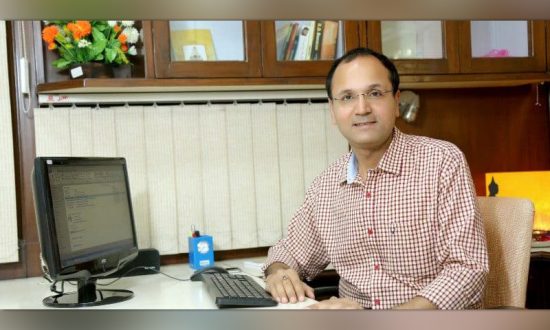Mr. Rajesh Gupta is the Co-founder & CTO of BUSY Accounting Software – a company dedicated to providing business accounting software to Micro, Small & Medium Enterprises (MSMEs). An Electrical Engineering graduate from DTU (formerly Delhi College of Engineering), he is the technical mind behind India’s leading Business Accounting Software – BUSY. After completing his engineering, Mr. Gupta joined his elder brother (Mr. Dinesh Kumar Gupta) in his computer sales and maintenance business under the company name Digitronics.
Since then, Mr. Gupta has been instrumental in the continuous growth of BUSY. He is responsible for the overall product development, maintenance and back-end support. Today, BUSY is one of the leading business accounting software available with over 300,000 Licenses sold in over 20 countries. In addition to his responsibilities at BUSY Accounting Software, Mr. Gupta is also an active contributor to various social organizations.
Recent times have witnessed massive changes brought into accounting by the rise of new technologies. Digital accounting software has simplified complicated processes, making them more efficient, user-friendly and error-free. E-invoicing has been a more recent development in the field. Invoices comprise a crucial aspect of business which helps companies track their sales and maintain record of finances efficiently. Subsequent to going digital, e-invoicing has, thus, proven to be a game-changer.
While till now e-invoicing had been mandated for all B2B transactions in large enterprises, the decree has now been extended to companies with a much smaller turnover and hailing from remote areas.
Challenges to Overcome
Although mandating businesses to generate e-invoices is a welcome move, experts have pointed out that for small-sized businesses, e-invoicing can pose certain challenges, mainly on 3 fronts – upgrading their existing IT systems, adopting invoicing practices, and the need to impart training to the personnel.
Most MSMEs do not invest much in technology and owners often lack digital literacy. The GST system requires businesses to upload invoice-related data though their in-house ERP software on a dedicated web portal. This data has to be transferred in a pre-fixed format to the electronic schema. This will capture data related to the supplier and receiver along with the details of the invoice. Uploading and processing data will be a challenging task for companies that generate a huge number of invoices. Also, direct integration will be tough for small businesses due to the extra costs and resources that are required.
Another major area that will prove difficult relates to the invoicing practices followed by businesses across various industries. For example, service industry has a monthly invoicing model while factories tend to generate a final invoice on every supply. Service providers close books of accounts in the forthcoming month as the data on timesheets and work done in the previous month can only be provided once the current month is over. The government had initially proposed a 48-hour deadline for generation of invoice but later suspended its implementation. If this deadline comes into effect again, then it will have adverse effects for the taxpayers due to reconciliation issues and delays.
Companies will also have to properly train their employees and alter operational protocols to ensure a smooth rollout of invoicing procedures. This will require more co-ordination of different functions within the organisation. Most SMBs also face the challenge of being ill-equipped technologically. Thus, they are required to assess their existing digital accounting systems and ensure that they are updated in accordance with the new requirements for e-invoicing.
Most of the time, consumers aren’t willing to embrace tech-based ways of conducting business. For this, it’s necessary that companies communicate the benefits of digital invoicing to customers and take them in confidence.
Possible Solutions
GST Network (GSTN) has already empanelled free offline and online invoicing and accounting service providers to facilitate a smooth transition for small businesses to the new regime. Though the features offered will be limited in the free package, but they will be enough for an IRN’s generation. Then, it is up to the MSMEs to purchase add-on features based on their net usage.
Even companies that aren’t using CRM or ERP solutions can easily and conveniently transition by adopting an invoicing or accounting software. They can then understand the standard template of the e-invoicing system while the GSTN can manage the remaining returns filing. With greater technology adoption, invoices will be electronically generated, thus eliminating chances of invoice inflation and fraud in trade finance & supply chain financing.
Summing Up
E-invoicing tends to offer many advantages to SMBs. With the recorded transaction details, small companies can build transactional history and access trade financing details as and when required. Besides, even the government can easily keep a track of the transactional value of domestic supplies as against imports. In addition, the e-invoicing system can help small enterprises obtain instant loans as banks will be able to assess requests based on the invoices. Yet there are challenges to be overcome and only adoption of the requisite technology can help in this regard.


